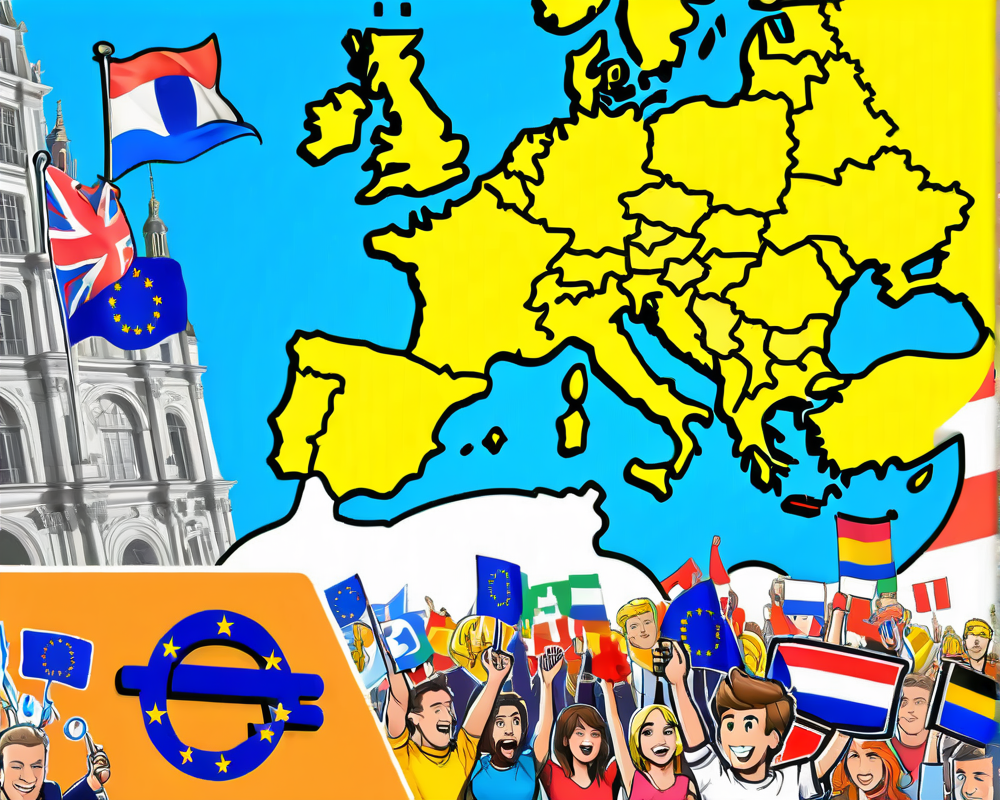The Rise of Crypto in Europe
Over recent years, the European cryptocurrency landscape has blossomed like a spring garden after a long winter. The excitement surrounding digital currencies and blockchain technology has surged, capturing the attention of investors, politicians, and enthusiasts alike. This digital money revolution is not just about financial innovation; it also intersects with various political ideologies, including those from the more conservative branches of the spectrum.
Why Right-Wing Politicians Are Eyeing Crypto
For many right-wing politicians in Europe, cryptocurrencies symbolize individual freedom and autonomy, much like a bright, shiny toy that can easily distract a child on the playground. With a penchant for limited government intervention, right-wing ideologies see decentralized currencies as a beacon of financial sovereignty. After all, who wants to jump through bureaucratic hoops when you can control your own financial destiny?
- Decentralization: It’s the financial freedom fairy tale!
- Challenging the establishment: Cryptos as the Avengers taking on the traditional banking trolls.
- Historical context: Born out of the frustrations from the 2008 financial crisis, Bitcoin stepped onto the stage like a reluctant hero.
Germany’s AfD and Its Crypto Fancies
In Germany, the Alternative for Germany (AfD) party has shown a curious infatuation with Bitcoin. Picture Alice Weidel, the party’s leader, scampering off to blockchain conferences, dipping into the crypto pool as if it were a refreshing summer swim. The AfD’s questions posed in parliament—like how much Bitcoin can the government hoard?—highlight their proactive approach to crypto advocacy.
Other Notable Right-Wing Figures Embracing Crypto
It’s not just the AfD getting cozy with cryptocurrencies. Leaders from the Dutch right-wing parties and even the likes of Nigel Farage have expressed their hopes that Bitcoin might turn out to be that effective alternative to traditional financial systems. The idea here is that currencies like Bitcoin hold the promise of speed, efficiency, and, let’s be honest, a rebellious charm that many seem to find irresistible.
- Geert Wilders (PVV) wants Bitcoin to be as common as tulips in Amsterdam.
- Thierry Baudet fantasizes about making the Netherlands a Bitcoin haven.
- Farage sees Bitcoin as the ultimate solution to the sluggishness of traditional banking.
The Darker Side of Crypto Attraction
However, it’s not only politicians donning their crypto capes; extremist movements have latched onto digital currencies too. Reports reveal that some of these groups have been accepting Bitcoin donations since 2012! It’s a head-scratcher—on one hand, you have mainstream politicians tiptoeing around the digital gold, while on the other, extremist factions are setting up shop in the crypto bazaar. This duality raises the question: Can crypto be disentangled from questionable political affiliations?
Understanding Crypto: Beyond the Right-Left Dichotomy
So, is cryptocurrency intrinsically aligned with right-wing ideologies? Not at all! It’s important to note that crypto itself doesn’t wear political stripes. Politicians from various parties, including liberal factions, have expressed enthusiasm for digital currencies’ potential. The key is fostering an educational environment where cryptocurrencies are seen as tools for empowerment rather than aligning them with any singular political narrative.
The future of the European crypto landscape remains to be seen, but one thing is for sure: this financial revolution is here to stay, traversing boundaries and ideologies like a wanderer on an endless journey.




